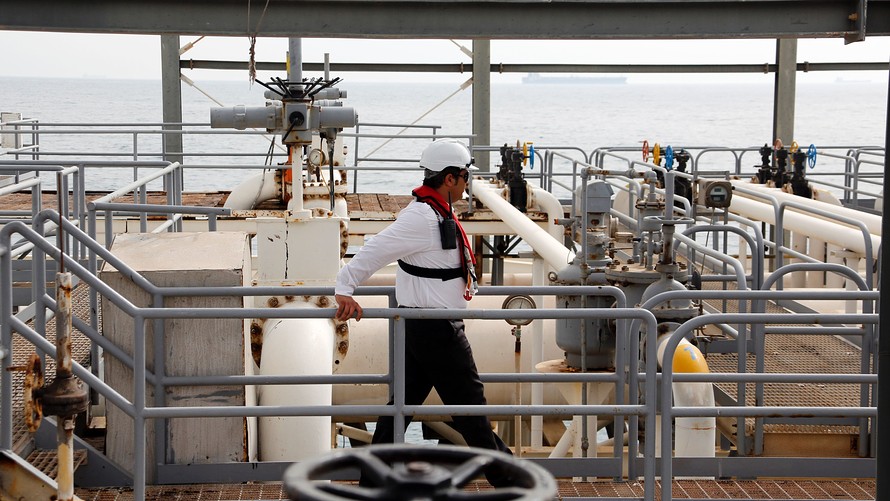
Another eye in the back of your head might be useful this week.
Investors are watching the trade situation, a two-day Fed meeting that starts Tuesday, rising bond yields and now, climbing oil prices.
Brent crude
LCOX8, +0.89% was pushing $82 a barrel early Tuesday, extending its climb to a four-year high from Monday. Gains came after a weekend meeting of major oil producers failed to yield any promises on higher production, something POTUS has been pounding the table over lately. Helping out prices is the fact an oil-supportive Iran embargo also grows closer by the day.
See: Iranian official to Trump: Want lower oil prices? Keep quiet and stop tweeting
Amid the fresh enthusiasm, some have even been talking about a return to $100-a-barrel oil.
Careful what you wish for, says our call of the day from Fitch Solutions Macro Research. They warn that sentiment for crude right now is so bullish it could leave the market “heavily exposed should risk-off sentiment spill over into oil.”
Fitch analysts explain that while there are plenty of reasons for oil to move higher tied to further tightening on the supply side,” that comes amid more challenging macroeconomic conditions. “Much of this revolves around the escalating U.S.-China trade dispute and fears of contagion among emerging markets (EMs), but also ties into underlying trends in oil prices, the dollar, and global liquidity,” explain the analysts.
Further caution was heard this morning from Commerzbank analysts, who noted a couple of pretty bullish calls from commodities traders laying out the case for $100-a-barrel oil by early 2019, driven by the loss of up to 2 million barrels of oil a day from Iran once November sanctions kick in.
“We regard this as the extreme scenario, which would require all countries apart from China to completely stop buying Iranian oil, which we believe is unlikely,” said a team of Commerzbank analysts led by Eugen Weinberg, who say China could respond to U.S. tariffs by buying even more Iran oil.
More cold water: “If the price were to surge to such an extent, the U.S. would probably grant exemptions to the sanctions and/or release strategic oil reserves, as such a high price would hardly be in its interests given the development of its own economy,” says Commerzbank, noting that emerging market demand would take a hit and U.S. producers probably couldn’t boost production fast enough in response.

